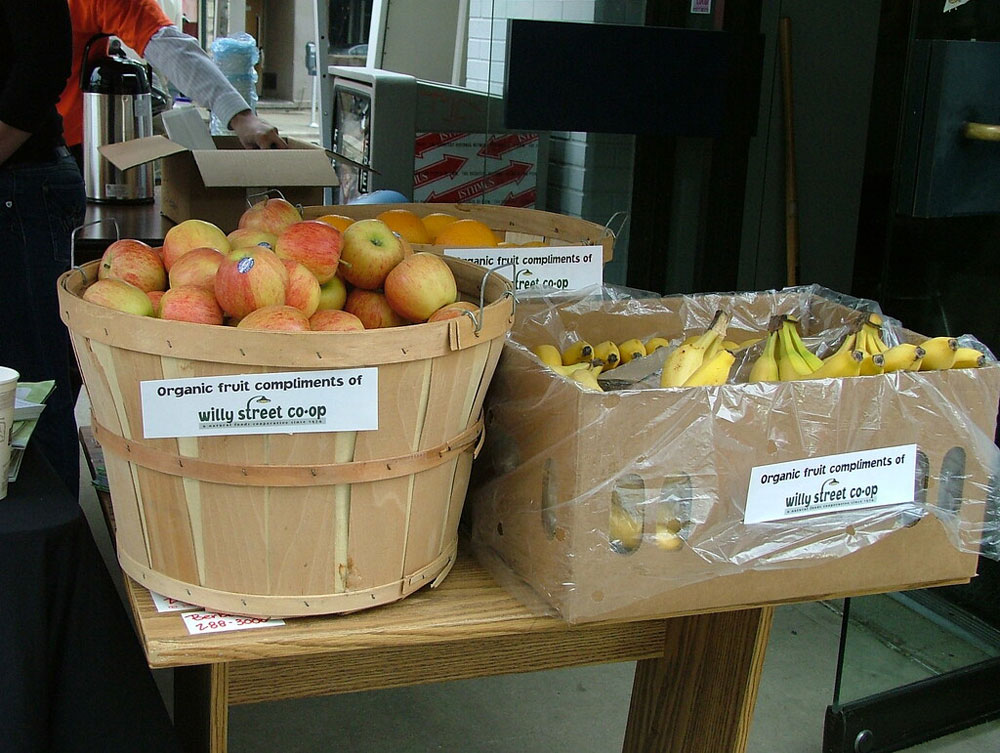
September 5, 2019; Isthmus
Workers at Madison, Wisconsin’s Willy Street Co-op—which, until the election held on September 3rd and 4th, represented the largest non-union workforce at a food cooperative—voted, in an election with an 86 percent turnout rate, by a margin of 249 to 40 to be represented by the United Electrical, Radio and Machine Workers of America (UE). Willy Street Co-op is a large Madison, Wisconsin food co-op with nearly 35,000 consumer member-owners and over $50 million in annual sales.
The workers, representing all three stores and nine grocery departments of the co-op, chose UE, a “rank and file” union that, according to the UE website, emphasizes “membership involvement, local autonomy and a principled, aggressive approach to dealing with the boss,” after forming an organizing committee of over 70 employees.
The impetus for the co-op workers’ union representation campaign was a disciplinary policy that penalized employees for minor or unavoidable attendance violations. The American Civil Liberties Union (ACLU) has called out such policies, referred to as “no-fault” policies, for violating federal laws such as the Pregnancy Discrimination Act, because violations include checking in late and missing work due to illness. However, committee member Sara Andrews, speaking to Alice Herman in Isthmus, said the union campaign was also driven by “an effort to align the co-op with its progressive principles” to address “the bigger problem of corporatization” of the co-op.
This is the second time Willy Street Co-op tried to organize—the first unionization drive in 2014 became public a month before the scheduled election and did not succeed, but this time around it remained underground until shortly before the election. As Andrews says, “Food co-ops and unions make a natural fit.”
Sign up for our free newsletters
Subscribe to NPQ's newsletters to have our top stories delivered directly to your inbox.
By signing up, you agree to our privacy policy and terms of use, and to receive messages from NPQ and our partners.
The past five years have seen workers of growing food co-ops in Minneapolis, New York and Pennsylvania organize union drives, as referenced in this 2015 article from the Cooperative Grocer Network. That article takes an anti-union stance, asserting that leadership practices that align with cooperative values “discourage union activity” and create a workplace “where employees don’t feel the need to pay union dues to feel like they are valued and treated fairly.”
In “The Economy is Changing—and So Must We: A New Charge for Nonprofits,” NPQ’s Steve Dubb wrote about the promise of institutions that build community wealth to address the nation’s high poverty, income inequality, and low scores of social well-being. Co-op principles include egalitarian ideas such as democratic owner control (#2), owner economic participation (#3), autonomy and independent (#4) and concern for the community (#7), so co-ops like Willy Street would seem to be ideally situated to address these challenges.
However, as Willy Street Co-op shows, community ownership, even if it is a necessary condition for social and economic transformation, is not a sufficient condition. A cultural shift is needed as well. Managers at co-ops like Willy Street too often come across as just as bossy as their corporate counterparts.
As Andrews states in Isthmus, co-op values “can’t just be a PR tool. If [the co-op] can’t execute its values, a union will push them to do so. That’s why a union is necessary.”
In the Capital Times, Willy Street Co-op general manager Anya Firszt said co-op management is committed to “engaging in the collective bargaining process with the goal of successfully negotiating a labor contract.” The union, notes the Capital Times, “will represent non-management workers at the co-op’s three retail stores, an off-site kitchen, and the central office.”—Kori Kanayama













